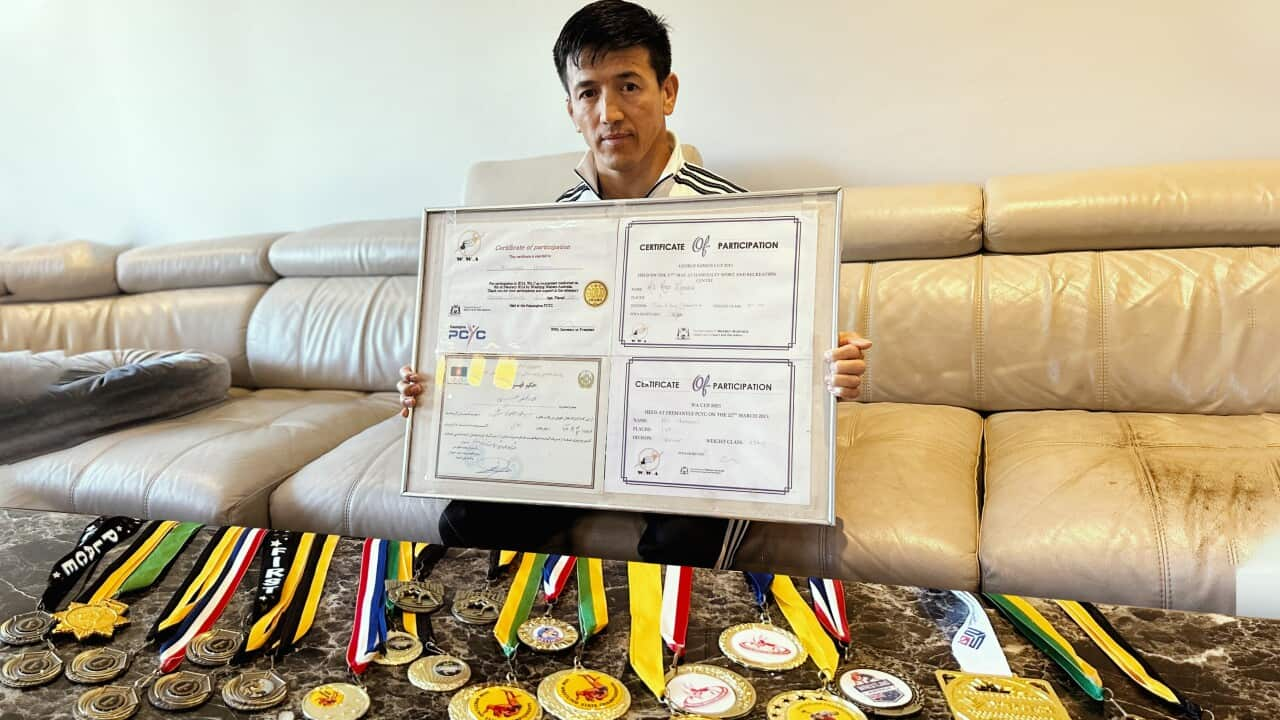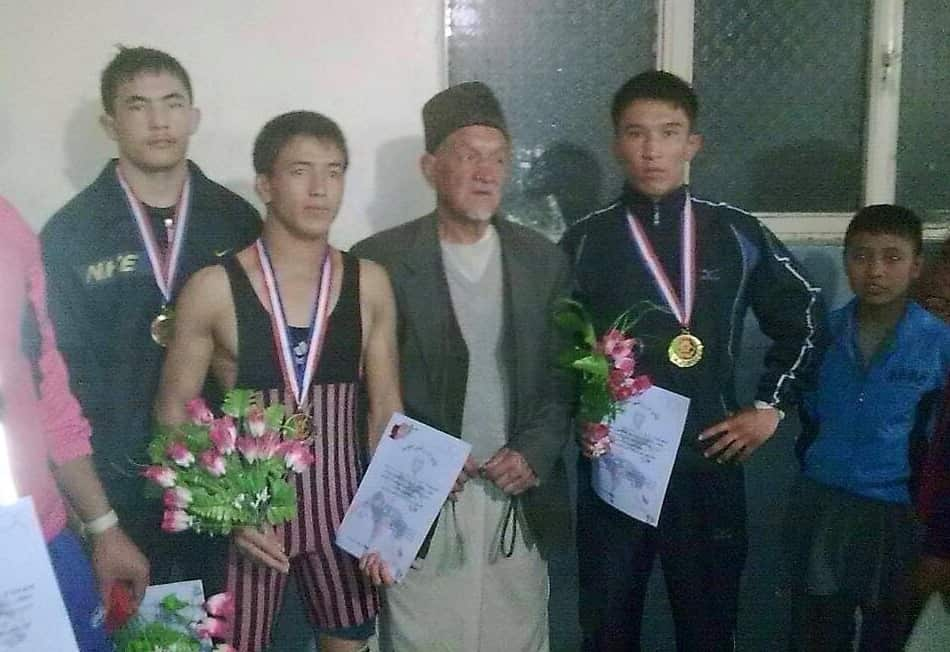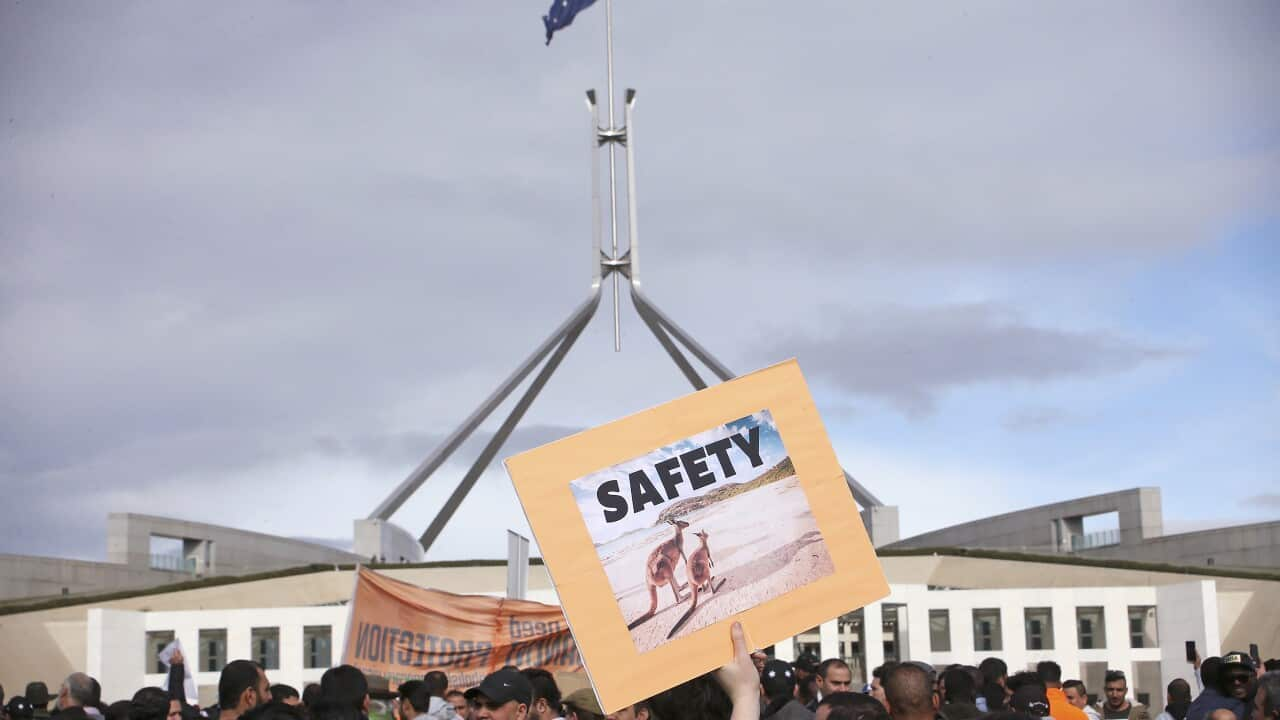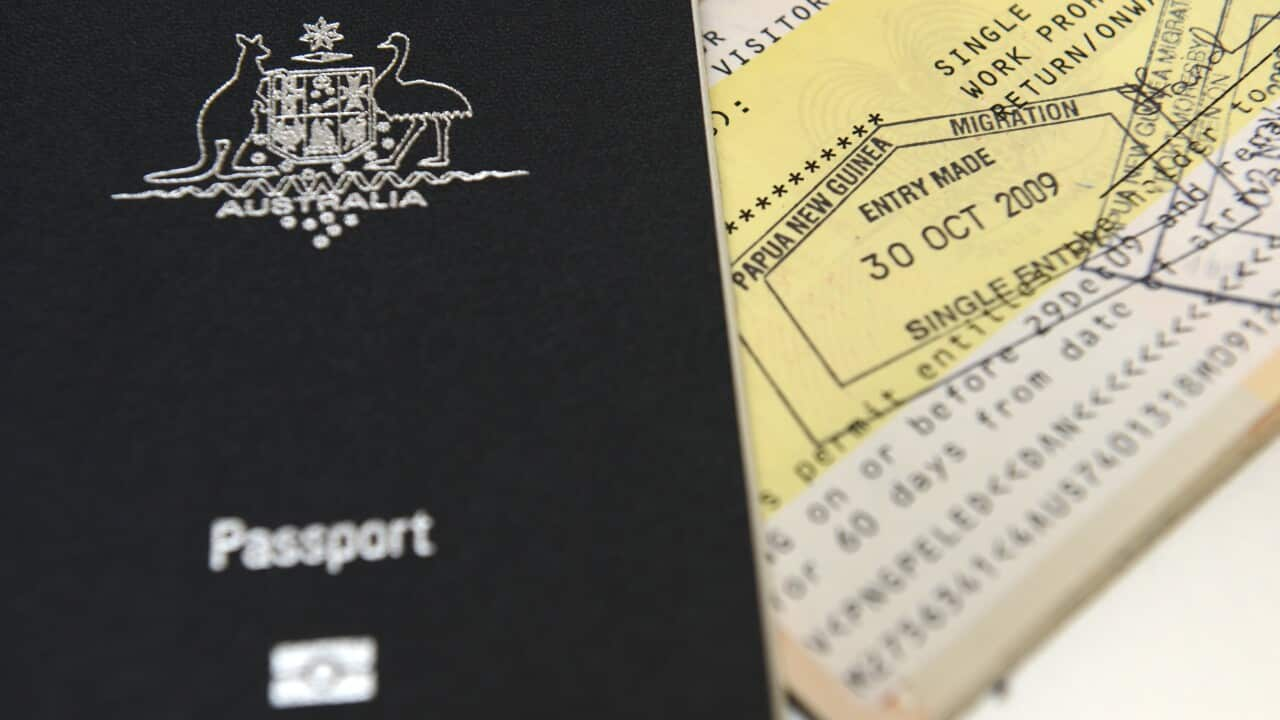

5 min read
This article is more than 1 year old
Exclusive
Ali was crowned the best in the country but could never represent Australia, until now
National wrestling champion and Hazara refugee Ali Asghar Hussaini is now on the road to representing Australia after a decade in limbo — but it’s come at a cost.
Published
By Mahnaz Angury
Source: SBS News
Image: Ali Asghar Hussaini has won many wrestling medals. (SBS News / Mahnaz Angury)
Ali Asghar Hussaini is a man of few words, but when it comes to his wrestling medals he can recall the details of each one.
“These were in Afghanistan,” the 31-year-old says, picking up two of them.
“And these are all national titles,” he says of five more, won in Australia.
The remaining dozen were awarded at state competitions.

Ali Asghar Hussaini has won multiple wrestling competitions. Source: Supplied / Ali Asghar Hussaini
His visa status meant that was never possible, until now.
Hussaini grew up in the province of Maidan Wardak in Afghanistan. He’s part of the Hazara ethnic group which has long been subjected to persecution.
“Hazaras have always been tortured by the Taliban. They’ve always killed Hazaras, they continue to kill Hazaras,” Hussaini says.
The Taliban's victims included his brother.
“My life was in danger, there was injustice, so I came to Australia.”

Ali Asghar Hussaini (second from right, front row) started wrestling in Afghanistan. Source: Supplied / Ali Agshar Hussaini
He spent more than two months in three different detention centres before being released into the community on a temporary visa.
He built a career for himself as a bricklayer in western Sydney while training and competing as a wrestler, but he remained on that temporary visa for more than 10 years.

Hussaini won titles in Afghanistan before coming to Australia. Source: Supplied / Ali Agshar Hussaini
“They didn’t give it [permanent visa] when I needed it to travel outside of the country and compete in world championships, in the Olympics”, Hussaini says.
But after a decade of living in limbo, Hussaini finally received some clarity last week.
Hussaini has been given a Resolution of Status (RoS) visa. The visa provides a new pathway to permanency for more than 19,000 refugees on temporary protection visas (TPVs) and safe haven enterprise visas (SHEVs) and was announced by the Albanese government in February.
“TPV and SHEV holders work, pay taxes, start businesses, employ Australians and build lives in our communities,” immigration minister Andrew Giles said at the time.
“It makes no sense — economically or socially — to keep them in limbo.”
More than half of the refugees who are eligible to apply are from Afghanistan and Iran.
for Amnesty International Australia and a friend of Hussaini. He too fled Afghanistan and says the situation for Hazaras has worsened in recent decades.
“If Ali was in Afghanistan, it would’ve been very hard for him to compete nationally and internationally,” he says.

Hussaini with his friend and refugee rights campaigner Zaki Haidari. Source: SBS News / Mahnaz Angury
“I shared it on the WhatsApp group. I told them, ‘I got the visa. They’re giving visas to everyone, don’t be stressed,’” he says.
The visa means Hussaini can now apply for citizenship, and once he’s a citizen he can represent Australia internationally.
When talking about potentially going to the Paris Olympics next year, Hussaini is optimistic, but there’s a tinge of sadness in his voice.
“When I was ready, when I was on form, they didn’t give it. Now … now my heart is broken,” he says.
Aside from his Olympic dream, what he longed for even more was to permanently reunite with his mother.

Hussaini with his mother when he was younger. Source: Supplied / Ali Asghar Hussaini
“She was very proud of me.”
Refugees on temporary visas are unable to sponsor visa applications for their family members.
Hussaini would talk to his mother daily over the phone.

Ali Asghar Hussaini spends hours training at the gym. Source: SBS News / Mahnaz Angury
His mother died three months ago. He couldn’t attend her funeral. They were never reunited in Australia.
Despite his recent visa news, there are still hurdles for Hussaini to now overcome.
With the Olympics just 14 months away, there are fears he won’t receive his citizenship in time, prompting calls for the immigration minister to step in.
“What we would love to see is for the minister himself to intervene in this case. The sooner the better because the clock is ticking for him,” Mr Haidari says.

Hussaini needs to become a citizen in order to represent Australia internationally. Source: Supplied / Ali Asghar Hussaini
A spokesperson for the Department of Home Affairs told SBS News more than 1,000 RoS visas have been granted since February and around 16,000 applications are awaiting assessment.
“The Government is focused on providing those who engage Australia’s protection obligations a chance to continue their lives in Australia with certainty and security,” they said.
Despite losing so much in the past decade, Hussaini is still clinging to the hope he arrived in Australia with.
Would you like to share your story with SBS News? Email


